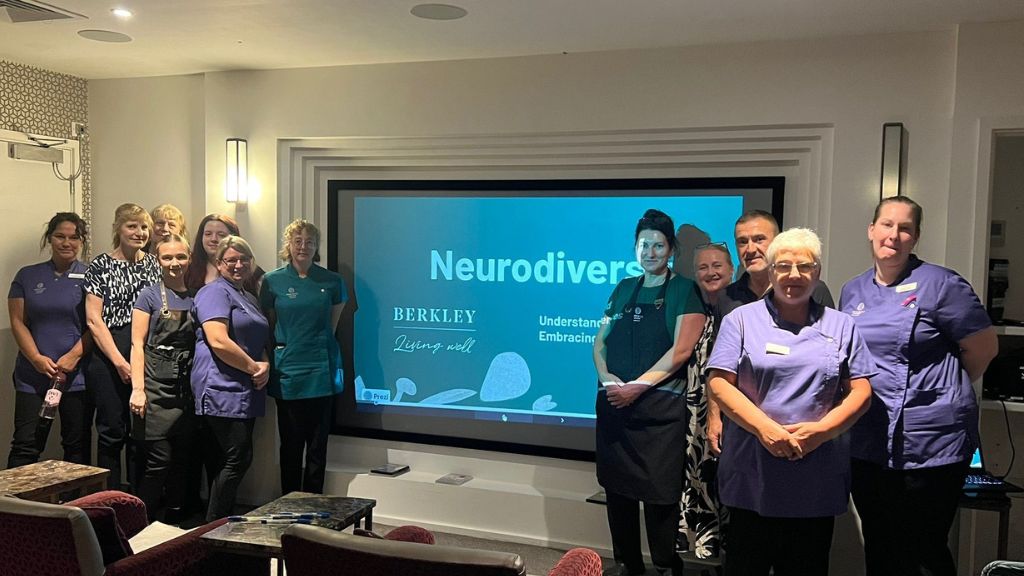OP ED EXCLUSIVE: We need to value social care

Nadra Ahmed, executive co-chairman of the National Care Association, says valuing social care is key to delivering an effective healthcare system
There is no doubt that social care remains at the heart of the healthcare responses in our nation where, despite the fact that successive governments have failed to recognise its value or prioritised its role within the healthcare economy.
While social care provision remains neglected and underfunded, our colleagues in the NHS continue to receive focused attention from all decision-makers because it remains free at the point of access, thus ensuring citizens can access clinical support when they need it. Social care, on the other hand, remains means tested and chronically underfunded. It is hindered by unacceptable delays in assessments and pathways to care and support at every level, which has a devasting impact on individuals and their loved ones.
One of the main challenges we face as a society is that we fail those we seek to serve by not having a strategy or policy that supports collaborate thinking across health and social care; we have no seamless service which take an individual from crisis to acute care to support in the community with its many options. A pathway which is truly person-centred ensuring that the needs of the individual remains at the heart of all we do and empowers them to retain choice and control of their health and care needs.
We must stop trying to fit individuals into systems and processes that do not adequately respond to the personalisation agenda talked about so often. We understand we need systems to support processes, but the key to success relies heavily on support in a personalised way where the best outcome is in the best interest of the individual, not the system. The healthcare sector has consistently struggled over the past two decades, which has been undeniably exacerbated by Brexit and the Covid-19 pandemic in the past five years. We know with a growing and ageing population the need to re-establish access to healthcare services needed to be recalibrated.
It is unacceptable that we continue down a path which fails the individuals needing care and support at every turn. Sustainable change must be established to ensure that we are not only fit for the future but remain so.
The demographics of needs for an ageing population have been in the public domain as forward projections for decades. We know, and should celebrate, that people are living longer due to the investments in medical research which finds cures, but alongside that it is important to recognise that we must also invest in supporting people with complex healthcare needs which need ongoing monitoring.
Keeping people healthy is heavily dependent on a robust prevention strategy which has sustainable resource, both financial and human, to create long-term care and support when needed.
To ensure we meet those needs we know we will need half a million more carers by 2030/35 to support them. What we do not have is a strategy to ensure we can meet the projected demand despite repeated calls for this. Without a competent and confident workforce, we will not be in position to meet the demand.
As we enter an election year, we need to hear from our political leaders about their deliverable aspirations for social care, not visions and rhetoric. We have had many iterations of this on the steps of Downing Street over the years and every time they have failed to deliver. There is always mitigation when quizzed with short termism, none of which has moved the sector forward in a sustainable way.
In fact, at times short-term grants and funds have had a negative impact which makes the pace of change even more challenging. We only need to look at the mandatory vaccination policy to see the impact on a highly motivated workforce who were unrecognised throughout the Covid period.
This trend of announcement to plug gaps creates huge challenges for both the providers and the local authorities which are often charged with distribution of funds. It also set precedents with no sustainable funding, an example of this was the sickness funding for social care staff at the height of the pandemic.
The question around the image of social care is one which remains a conundrum for us all who work in or try to access services. Those of us who work in social care or access it in time of need will understand its value, at times we will be challenged by the twists and turns too.
Notably, our colleagues in the NHS are also among those who understand the value and role of social care as they navigate the key pathways to wellbeing for those who access acute healthcare options but then need community options. Despite this, we find the perception of social care, portrayed through the media and indeed policy, devalues all we do. A scandal in the NHS will see social care at the centre of any reform; this was especially worrying with the Winterbourne View scandal.
The fact that policy is clear that social care is not free at the point of access has also created a negativity by the fact that it is predominately an investment by providers who deliver public service using business models.
The narrative on return on investment occupies the minds of commentators, but the fact that this is a conscious policy decision by government evades mention. Publicly run care services are substantially far more expensive which is why the care home market was wound down leaving the private and voluntary sectors to invest in and deliver the support required. Interestingly, this is no different to the medical practices of GPs, but the social care sector is scrutinised at every turn, while GPs, who refuse to take on any extra responsibility without financial incentive are ignored.
This was especially interesting during the recent pandemic when care providers were asked to take discharges out of hospitals at pre-agreed contract prices, but GPs were incentivised to administer the Covid vaccine. It is important to note that both services are private enterprises, but one is vilified while the other is supported unquestioned and seen as the NHS response to wellbeing.
The reality is there has been much talk about the integration of health and social care over the past few decades and little progress has been made. The term ‘integration’ at the simplest level is the processing of two or more things to create a whole so it is about bringing together multiple systems to form a collaborative unit.
This collaborative unit should be based on a model which meets the needs of individuals who pass through the system – commonly known as personalisation. So, to create integration we must bring together, as one, a multifaceted NHS (under one master) with 18,000-plus independent and entrepreneurial services in an ever-changing and quite frankly chaotic economic climate.
There are undoubtedly areas of good practice across the nation which exist because of the commitment of individuals to deliver a joined-up service to those we serve – the individual who needs care and support in times of crisis.
Until and unless we see the value of social care within the healthcare ‘system’ we will continue to fail our citizens. We must be able to deliver the same rewards for our highly skilled workforce caring for people with complex conditions which include dementia, end of life care, mental health etc, which two decades ago were supported by the NHS and funded accordingly. The conditions remain complex, but social care is expected to deliver at a fraction of the funding.
Valuing social care is the key to all healthcare options, until and unless that is recognised, we will continue to procrastinate and deliver little. Social care will remain the political football at every election with no resolution post forming the government and the citizens will continue to struggle trying to access care and support when they need it.



